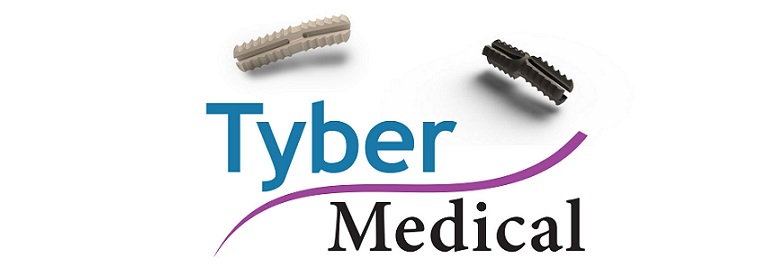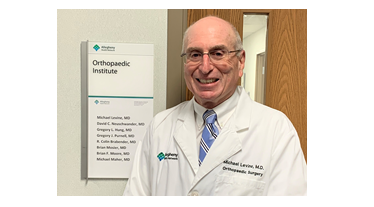Birmingham, AL, January 31, 2023 /OrthoSpineNews/ – Alevio® Spine, a leader in the treatment of sacropelvic conditions, today announced 510(K) clearance of additional indications for the SI-Cure™ SI Joint Fusion System. The expanded indication includes sacroiliac fusion for skeletally mature patients undergoing sacropelvic fixation as part of a lumbar or thoracolumbar fusion.
Studies have demonstrated a high incidence of SI joint pain in patients who have had a lumbar fusion.1 A retrospective study of patients who underwent lumbosacral fixation using SAI screws with at least 2 years of follow-up showed that loosening was observed in 50% of SAI screws. Furthermore, the bony fusion rate at L5–S was significantly lower in patients with SAI screw loosening than in those without screw loosening (65.0% vs. 93.3%, p =0.048).2
The SI-Cure Foundation™ construct provides a proven option for patients who are undergoing sacropelvic fixation as part of a lumbar or thoracolumbar fusion. The SI-Cure Implant was conceived and designed to optimize the treatment of patients with SI joint pain by providing compression, fixation and fusion. We have more than 4-years of clinical experience using a straightforward and clinically proven technique. By focusing on fusion, the SI-Cure Implant offers patients the potential for great outcomes.
- Patented design provides graft contact along the length of the implant
- Features a Self-Harvesting™ design that collects autograft as the Implant is advanced, thus eliminating the need for bone graft.
- As the Implant is advanced, the helical design pushes the bone into the open architecture of the implant allowing the Self-Advancing™ autograft to backfill the length of the Implant.
Clinical Results
A Retrospective Cohort Study using the SI-Cure Implants reported that simultaneous SIJ instrumentation and fusion decrease the risk of disability, prevent the development of postoperative SIJ pain, and may also protect the S2AI screw from loosening and failure.3
- A cohort of 103 patients was divided into 2 groups: 65 in Group 1 [S2AI screw without fusion device] and 38 in Group 2 [S2AI screw with SI-Cure fusion device].
- The length of follow-up for Group 1 was 402 vs 310 days for Group 2; P = .04)
- None of the patients in Group 2 developed postoperative SIJ pain compared to 44.6% in Group 1.
- Sacroiliac joint fusion occurred in all Group 2 patients but in none of the Group 1 patients.
- The postoperative Visual Analogue Scale (VAS) for lower extremity (LE) pain (.8 vs .5; P = .03) and postoperative Oswestry Disability Index (ODI) (18.7 vs 14.2; P < .01) were significantly higher in Group 1.
Indications for Use
The SI-Cure Sacroiliac Joint Fusion System is intended for sacroiliac fusion for the following conditions:
- Sacroiliac joint dysfunction that is a direct result of sacroiliac joint disruption and degenerative sacroiliitis. This includes conditions whose symptoms began during pregnancy or in the peripartum period and have persisted postpartum for more than 6 months.
- To augment immobilization and stabilization of the sacroiliac joint in skeletally mature patients undergoing sacropelvic fixation as part of a lumbar or thoracolumbar fusion.
- Acute, non-acute, and non-traumatic fractures involving the sacroiliac joint.
About Alevio Spine
Alevio, LLC is a fast growing, privately held medical device company located in Birmingham, Alabama. We work closely with healthcare professionals to create treatments that benefit patients who have sacropelvic conditions and enhance the practice of medicine. To learn more visit: www.aleviospine.com
References:
- DePalma MJ, Ketchum JM, Saullo TR. Etiology of chronic low back pain in patients having undergone lumbar fusion. Pain Med. 2011;12(5):732-739. doi:10.1111/j.1526-4637.2011.01098.x
- Nakashima H, Kanemura T, Satake K, Ito K, Ishikawa Y, Ouchida J, Segi N, Yamaguchi H, Imagama S. The Prevalence and Risk Factors for S2 Alar-Iliac Screw Loosening with a Minimum 2-Year Follow-up. Asian Spine J. 2019 Nov 5. PMID: 31679321 DOI: 10.31616/asj.2019.0127.
- Noureldine MHA, Farooq J, Kumar JI, et al. Improved Outcomes with Concurrent Instrumentation and Fusion of the Sacroiliac Joint in Patients with Long Lumbosacral Constructs [published online ahead of print, 2022 Jan 10]. Global Spine J. 2022;21925682211069095. doi:10.1177/21925682211069095








